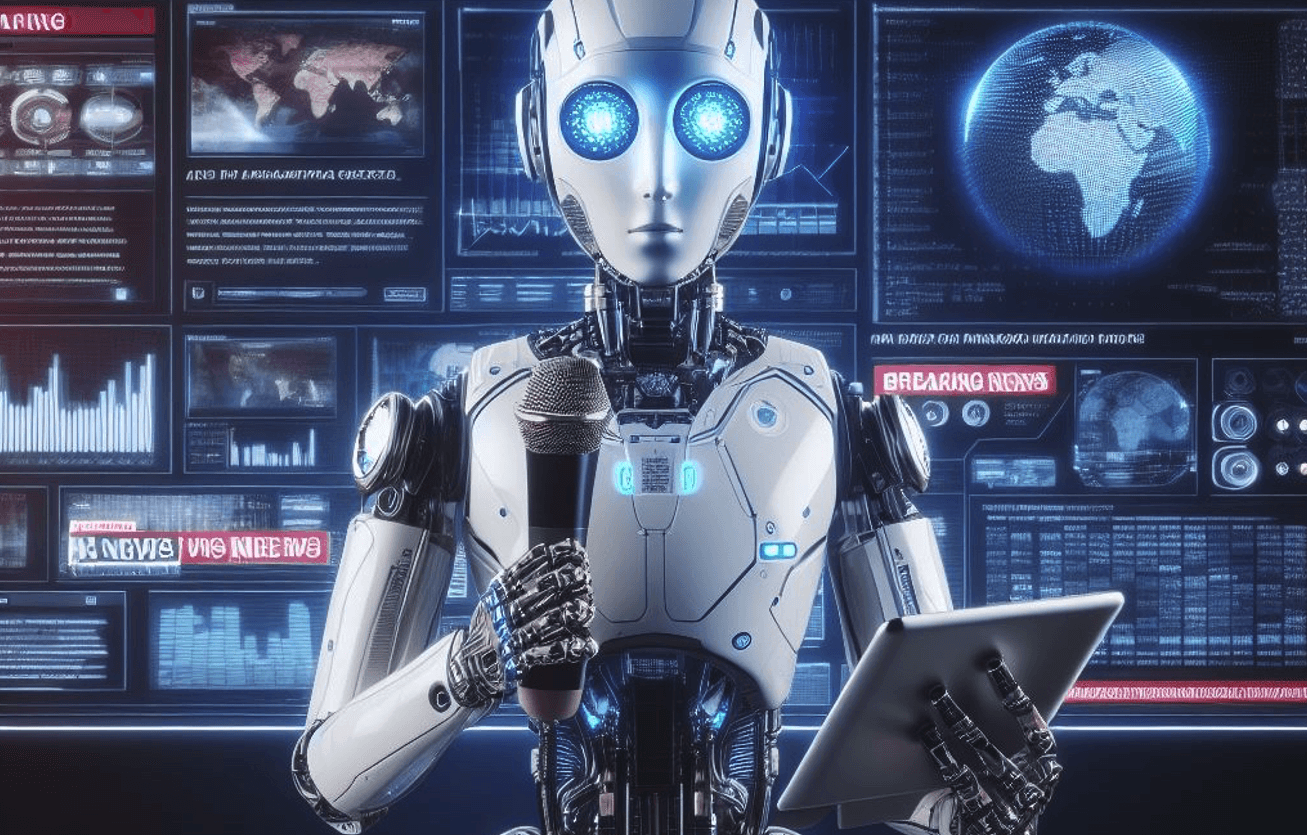Jun 6, 2024
Introduction
Animation has always been a mesmerizing art form, breathing life into characters and stories through the enchantment of motion. Over time, technological advancements have transformed the animation industry, and now, Generative AI is at the forefront of this revolution. Generative AI, which utilizes artificial intelligence algorithms to create original content, is reshaping the animation landscape, expanding creative possibilities, and pushing artistic boundaries.
Understanding Generative AI in Animation
Generative AI in animation employs algorithms and machine learning techniques to autonomously generate content. These algorithms are trained on extensive datasets, enabling them to learn animation patterns, styles, and characteristics. By analyzing this data, generative AI can create new, innovative, and visually captivating content.
The Impact of Generative AI on the Animation Industry
1. Automation of Animation Processes
Generative AI significantly automates various animation processes. Tasks such as character rigging, motion capture, and in-betweening, traditionally done manually by animators, can now be automated, saving time and effort.
2. Enhancing Creativity and Efficiency
Generative AI tools not only automate repetitive tasks but also enhance creativity and efficiency. These tools can generate a myriad of ideas, styles, and designs, inspiring animators to explore new artistic directions and experiment with different techniques, thus expanding their creative horizons.
3. Democratizing Animation Production
Generative AI democratizes animation production, making it more accessible to aspiring animators and independent artists. High-quality animations that once required expensive software and extensive training can now be created with generative AI tools, enabling a wider array of voices and perspectives to emerge in the industry.
4. Redefining Artistic Boundaries
Generative AI redefines artistic boundaries by allowing artists to explore new styles and techniques. By analyzing large datasets, generative AI can identify patterns and trends, enabling the creation of animations that push traditional limits and offer unique, visually stunning results.
5. Addressing Industry Challenges
Generative AI helps tackle industry challenges such as tight deadlines, budget constraints, and the need for continuous innovation. By streamlining production processes, reducing costs, and offering innovative solutions, generative AI enhances efficiency and creativity in animation.
Applications of Generative AI in Animation
1. Character Design and Animation
Generative AI assists in character design and animation by generating various character concepts, styles, and movements. This technology can also automate the animation process by creating keyframes and in-between frames, significantly reducing the time and effort required from animators.
2. Background and Environment Generation
Creating detailed backgrounds and environments is often time-consuming. Generative AI tools can automatically generate realistic and visually appealing backgrounds by training on extensive image databases, ensuring that the environments match the desired style and mood of the animation.
3. Storytelling and Narrative Generation
Generative AI can aid in storytelling and narrative generation by analyzing existing stories and generating new plotlines and scenarios. This technology can produce unique, engaging storylines, enhancing traditional storytelling methods and creating interactive narratives for video games and virtual reality experiences.
4. Motion and Physics Simulation
Generative AI can simulate realistic motion and physics, enhancing the animation's overall visual quality and believability. By analyzing real-world physics and motion data, AI algorithms can generate animations that accurately depict the movement of characters and objects, crucial for creating realistic simulations of natural phenomena like water, fire, and cloth.
5. Sound Design and Music Composition
Generative AI extends beyond visuals into sound design and music composition. By analyzing existing soundtracks and music compositions, generative AI can create original music and sound effects that complement the animation, crafting immersive audiovisual experiences.
Tools and Technologies for Generative AI in Animation
1. OpenAI’s DALL-E and CLIP
OpenAI’s DALL-E and CLIP are influential generative AI models. DALL-E generates unique images based on textual prompts, while CLIP understands and creates images based on textual descriptions, enabling animators to explore new visual concepts and styles through simple descriptions.
2. NVIDIA’s GANs and StyleGAN
NVIDIA’s Generative Adversarial Networks (GANs) and StyleGAN have revolutionized generative AI in animation. GANs generate realistic images by pitting two neural networks against each other, and StyleGAN allows for controlling specific visual attributes, facilitating the creation of highly detailed and visually stunning animations.
3. DeepArt.io and DeepDream
DeepArt.io and DeepDream create artistic and surreal animations. DeepArt.io transforms images into various artistic styles, while DeepDream generates dream-like, abstract animations based on existing images, allowing animators to experiment with unconventional animation styles.
4. Adobe Sensei and Project Kazoo
Adobe Sensei offers AI-powered generative animation tools, including automatic lip-syncing, character animation, and background generation. Project Kazoo, a collaboration between Adobe and NVIDIA, aims to democratize animation production, making it more accessible and efficient.
5. Google’s Magenta and NSynth
Google’s Magenta and NSynth are generative AI tools designed for music composition and sound design. Magenta generates original music compositions using machine learning algorithms, while NSynth creates unique sounds by combining existing audio samples, enhancing the auditory aspect of animations.
Ethical Considerations and Challenges in Generative AI Animation
Intellectual Property and Copyright Issues
Generative AI raises concerns about intellectual property and copyright, making it challenging to determine the ownership and originality of AI-generated content. Clear guidelines and regulations are needed to protect artists’ rights and prevent unauthorized use of AI-generated content.
Bias and Representation in AI-generated Content
Generative AI algorithms, trained on existing data, may contain biases and under representations, potentially perpetuating stereotypes or lacking diversity. Ensuring that AI algorithms are trained on diverse and inclusive datasets is essential for promoting fair representation in animation.
Maintaining Human Touch and Artistic Integrity
While generative AI offers automation and efficiency, it is vital to maintain the human touch and artistic integrity in animation. AI-generated content should enhance, not replace, the creative vision of human artists, striking a balance between automation and human creativity.
Ensuring Transparency and Explainability
Generative AI algorithms can be complex and challenging to understand. Ensuring transparency and explainability in these algorithms' decision-making processes is crucial. Clear understanding of how AI-generated content is created promotes trust and allows for informed decision-making.
Future Implications and Regulation
As generative AI technology advances, addressing future implications and challenges is essential. Questions about AI's impact on employment and industry dynamics need consideration, along with establishing regulations and guidelines to ensure responsible and ethical adoption of generative AI in animation.
Case Studies: Successful Implementation of Generative AI in Animation
1. Disney’s Deep Canvas and AI-assisted Animation
Disney has been a pioneer in incorporating generative AI in animation. Deep Canvas, developed by Disney, allows artists to create 3D-like environments with traditional 2D animation techniques. Disney also uses AI-assisted animation tools to automate repetitive tasks, enabling animators to focus on creative aspects.
2. Netflix’s AI-driven Content Recommendation and Personalization
Netflix utilizes generative AI algorithms to recommend personalized content to users. By analyzing user preferences and viewing patterns, Netflix's recommendation system generates personalized suggestions, enhancing the user experience and influencing the animation industry.
3. DreamWorks Animation’s AI-powered Character Animation
DreamWorks Animation leverages generative AI for character animation, automating the animation process and resulting in more efficient production pipelines. AI-powered tools generate realistic movements and expressions, enhancing the overall quality of DreamWorks’ animations.
4. Studio Ghibli’s Experimental AI Collaboration
Studio Ghibli, known for its hand-drawn animations, is exploring generative AI to experiment with new animation techniques and styles. This collaboration demonstrates traditional animation studios' willingness to embrace AI and expand their artistic horizons.
5. Independent Artists and Studios Embracing Generative AI
Generative AI tools are gaining popularity among independent artists and studios, allowing them to create high-quality animations without extensive resources or technical expertise. These tools enable independent animators to bring their unique visions to life and gain recognition in the industry.
Future of Generative AI in Animation
1. Advancements in Machine Learning and AI Technologies
As machine learning and AI technologies continue to evolve, generative AI in animation will become even more sophisticated, allowing animators to create animations indistinguishable from those crafted by human artists.
2. Collaboration between AI and Human Artists
The future of generative AI in animation lies in collaboration between AI and human artists. AI algorithms can assist in generating ideas, automating repetitive tasks, and enhancing the creative process, unlocking new levels of creativity and innovation.
3. Impact on Employment and Industry Dynamics
The adoption of generative AI in animation may impact employment and industry dynamics. While AI automates specific tasks, it also allows animators to focus on more creative and complex aspects, potentially shifting job roles and skill requirements towards innovation and collaboration.
4. Potential for New Artistic Styles and Narratives
Generative AI can inspire new artistic styles and narratives by analyzing extensive animation data and identifying emerging trends. This technology encourages experimentation and innovation, leading to new artistic movements in animation.
5. Ethical Guidelines and Responsible AI Adoption
As generative AI becomes more prevalent, establishing ethical guidelines and ensuring responsible AI adoption is crucial. Clear regulations addressing intellectual property, bias, and transparency are necessary to harness generative AI's full potential while maintaining ethical standards.
Conclusion
Generative AI is transforming the animation industry, expanding creative possibilities, and redefining artistic boundaries. By automating processes and enhancing creativity, generative AI tools revolutionize animation production. As machine learning and AI technologies advance, the future of generative AI in animation promises exciting collaborations, innovation, and new artistic styles. However, addressing ethical considerations and ensuring responsible AI adoption is essential to preserving the unique qualities of animation as an art form.





